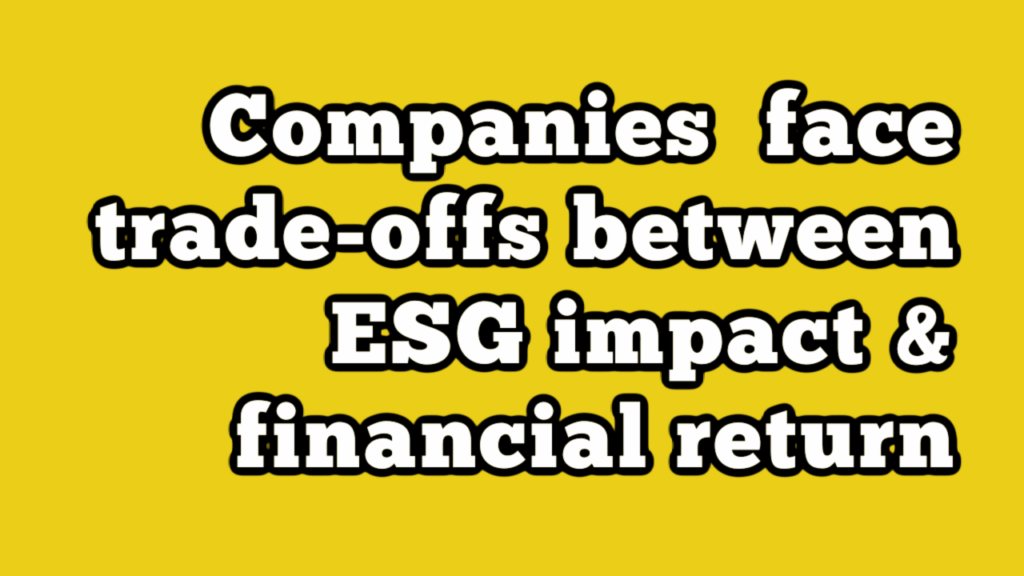Companies face trade-offs between ESG impact & financial return

Rick Alexander of “The Shareholder Commons” has been writing up great stuff all proxy season. His recap is excellent – here is his intro:
Lesson: a continuing failure to acknowledge trade-offs
We have learned a great deal in the past year. The most important lesson is how ingrained company-first thinking is. Even as environmental, social, and governance (ESG) activists lambaste shareholder primacy, they accept the basic message that a company’s long-term financial return to shareholders is the ultimate measure of success for corporate executives. The movement is haunted by an unspoken assumption (and sometimes a bald assertion) that every company can adequately reform its behavior without having to accept reduced long-term financial return.
But this assumption—that companies face no trade-offs between ESG impact and financial return—reinforces the dangerously over-simplified neoliberal belief that companies optimizing for shareholder return also optimize social returns. Because recent activist victories have accepted the premise of this flawed paradigm, there is an increasing risk that the ESG movement will fail to separate itself from a naïve conflation of profit and value creation. But as the questions get harder, this misconstrued association threatens to undermine the utility of shareholder activism as a tool to prevent the catastrophic risks that current business activity creates.
Cost externalization underlies the reality of trade-offs
The reality is that companies often can and do make money in ways that externalize costs to the rest of society. Imagine a manufacturer that burns coal because it is cheaper than converting to natural gas or a renewable energy source. Its financial returns go up, but as one tiny cog in the economy, it bears only an infinitesimal portion of the incremental increase in climate risk. As a result of this imbalance, the decision may well be value-enhancing for the company. But from a global perspective, the calculus is much different: because the economy as a whole bears the full cost of the dirtier fuel, the decision is much more likely to be value-destroying at that level. The same is true for most investors, who are diversified and thus own a slice of the economy: their portfolios will suffer because they internalize much of the costs that the single coal-burning company was able to externalize.
Doing well by doing good is not enough
But this creates an uncomfortable situation: if what is good for a single company is bad for most portfolios, then investors will need to tell some companies to reduce financial returns. That is a tough message. It is much easier to ask companies to improve their ESG performance in ways that also increase return to the shareholders of the individual company in question. For example, if converting to renewable energy has upfront costs that will take ten years to recoup, then shareholders can make the case to the company that they will support the long-term investment, even if it reduces cashflows in the short term.
This strategy of “doing well by doing good,” sometimes called “ESG integration,” does not address the brute economic fact that there will continue to be opportunities to make money by exploiting common resources and vulnerable populations. Forgoing these opportunities to “do even better by doing bad” will reduce a company’s return to shareholders—even over the long term—and it is here that the important, difficult questions reside.
This uncomfortable truth applies to many issues. Maintaining a healthy economy may require that social media companies surrender long-term financial value by giving up advertising revenues that come from carrying anti-vaccination messages and racist podcasts. Food and pharma companies may have to spend more money to limit the amount of antibiotics in the environment to preserve the efficacy of antimicrobials upon which our economy depends. Adequately addressing racial disparities and other inequalities around the globe will require companies to invest in justice to build a more productive society, even if the investment isn’t paid back at every company.
